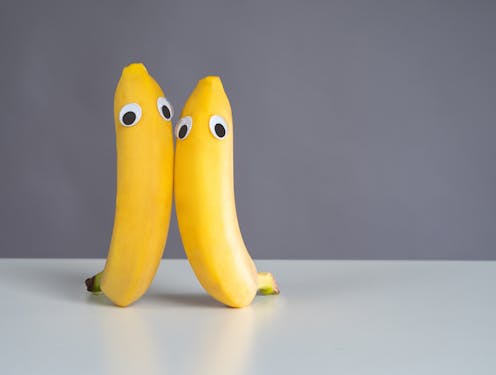How ‘sad’ bananas could help tackle food waste
- Written by Lisa Eckmann, Assistant Professor in Marketing, University of Bath

Bananas are a sociable fruit. They thrive in bunches, bound by a unifying stalk which joins them happily together in curvy yellow brightness.
But what about the ones which get separated from the bunch? Cast aside as single entities, they become isolated and alone.
Research I carried out with colleagues shows that some shoppers feel sorry for these[1] singletons. And it could have big implications for dealing with food waste[2].
For unsold solitary bananas, more likely to be thrown away than their unsold bunched counterparts, are one of the most wasted[3] types of food. Many food waste reduction plans[4] mention single bananas[5] as a particular problem[6].
This is a different issue to that of consumers rejecting[7] “wonky” fruit and vegetables which fail to meet aesthetic standards. In those cases, shoppers may be put off by odd shapes or discoloration, despite the food being perfectly tasty and nutritious underneath.
But it seems that perceived “imperfections” in fresh produce can also relate to how the produce is presented. And the problem is particularly acute for bananas that have been separated from the bunches they normally come in.
It seems that many consumers prefer to buy bananas as a collective, customising bunches to their needs by tearing off any they don’t want. The single bananas get left behind.
One strategy used by retailers to boost sales of imperfect food is price discounts. But the German supermarket chain REWE tried a technique which involved grouping single bananas together and labelling them as “singles” which wanted to be bought.
We teamed up with REWE to develop this approach, building on previous research which found that making imperfect food appear more human (by giving them faces[8] for instance, or hinting at body shapes[9]) makes them more appealing.
We made three signs to display above the single banana crates. One showed a “sad” banana with a down turned mouth and the message: “We are sad singles and want to be bought as well”.
A second showed a “happy” banana with a smile and a matching message, while a third showed no banana, but the words: “Here are single bananas that want to be bought as well”.
Rotating the signs every hour, we observed 3,810 banana shoppers over eight days in two stores. And we found that they were much more likely to choose single bananas when the sad signage was displayed.
Moving on to a subsequent online experiment, we found that the sad single bananas evoked compassion in consumers, motivating them to “rescue” the abandoned single produce longing for company. Nor was the effect of sad emotional expressions limited to saving single bananas – it also proved effective in a trial using single tomatoes.
The need to belong is a fundamental human motivation[10], which we are all more or less familiar with. Witnessing someone (or in this case, something) expressing sadness about this lack of connection seemed particularly effective in prompting a desire to help.
By turning rejection into compassion, retailers can encourage consumers to choose otherwise overlooked produce, preventing it from going to waste. This simple, low-cost intervention serves as a reminder that emotional connections can drive meaningful change in attitudes and behaviour.
With annual global food waste projected to double to 2.1 billion tonnes by 2030[11], solutions like these can help raise awareness to implement steps towards sustainable resource use.
In industrialised countries, a significant portion of current waste stems from trade standards and consumer preferences that prioritise the perfect appearance of fresh produce[12].
Giving a sad face to single or imperfect product is not the most effective way of getting people to buy them (we found in another part of our research that price discounts are still more effective). But it is one strategy retailers could use. And it is a useful reminder to shoppers who want to reduce food waste[13] that nobody, bananas included, wants to be left on the shelf.
References
- ^ feel sorry for these (onlinelibrary.wiley.com)
- ^ food waste (wedocs.unep.org)
- ^ most wasted (www.sciencedirect.com)
- ^ reduction plans (www.bcg.com)
- ^ single bananas (www.bhg.com.au)
- ^ particular problem (ecoworlder.com)
- ^ consumers rejecting (journals.sagepub.com)
- ^ giving them faces (www.sciencedirect.com)
- ^ hinting at body shapes (journals.sagepub.com)
- ^ fundamental human motivation (psycnet.apa.org)
- ^ double to 2.1 billion tonnes by 2030 (www.bcg.com)
- ^ perfect appearance of fresh produce (openknowledge.fao.org)
- ^ reduce food waste (theconversation.com)
Read more https://theconversation.com/how-sad-bananas-could-help-tackle-food-waste-244990







